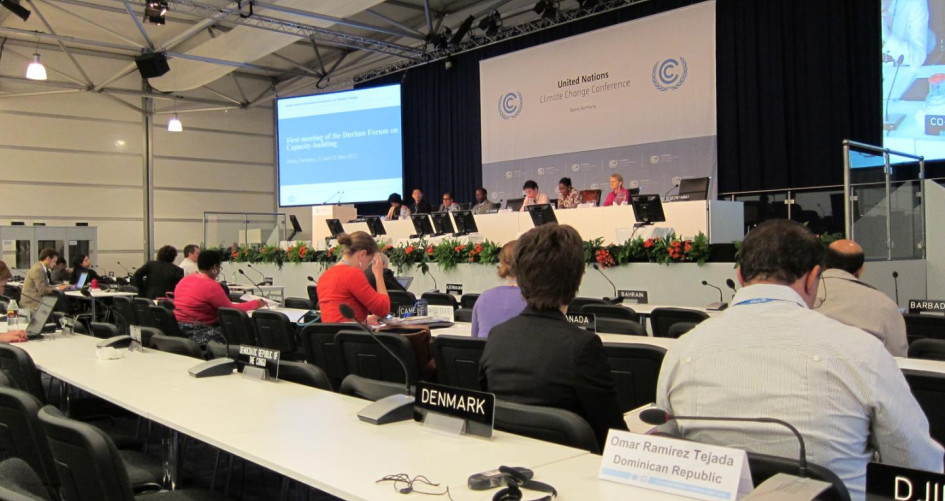The well-received presentations of the first day continued on Wednesday with a focus on technology, financial support and the issue of monitoring and review of the effectiveness of capacity-building, the latter being mandated in decision 2/CP.17.
Two often-repeated themes during the second day were “snowball effect” and “country-driven action.” Participants and presenters spoke about the need to create a snowball effect, whereby capacity-building action builds on itself, becoming larger and more effective as it goes. The second theme, country-driven action, referred to the importance of building the right project in the right place, led by local communities, for local communities.
The session on monitoring and review was characterized by a lengthy debate on the effectiveness of quantitative vs. qualitative indicators when monitoring and reviewing capacity-building projects.
The first meeting of the Durban Forum on capacity-building concluded with closing remarks by SBI Chair Mr. Chruszczow, who hailed the Forum as a success in terms of the importance of the issues raised, the quality of the presentations and the engaged debate which followed.

